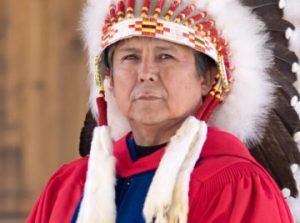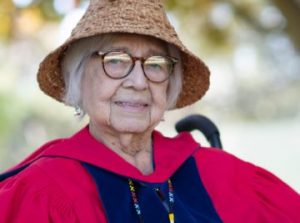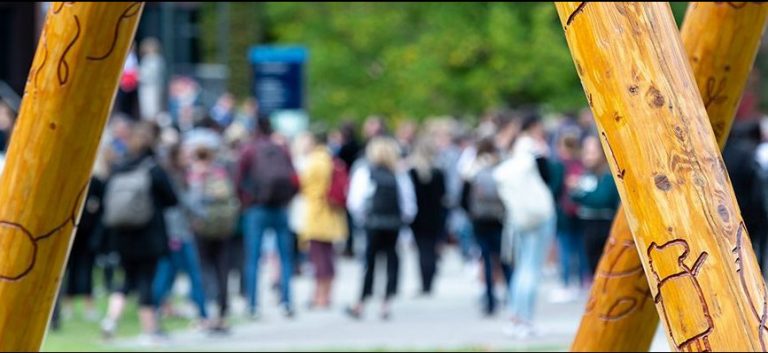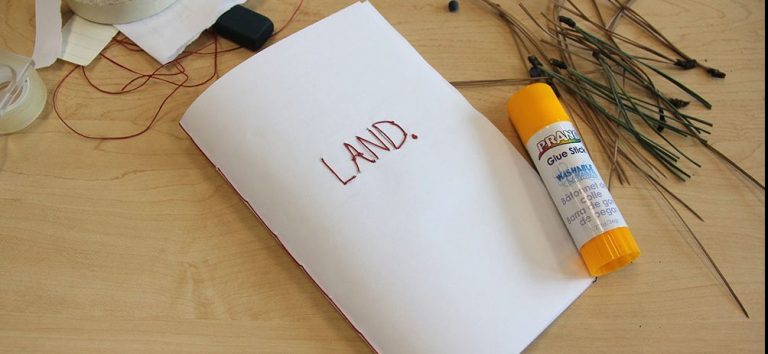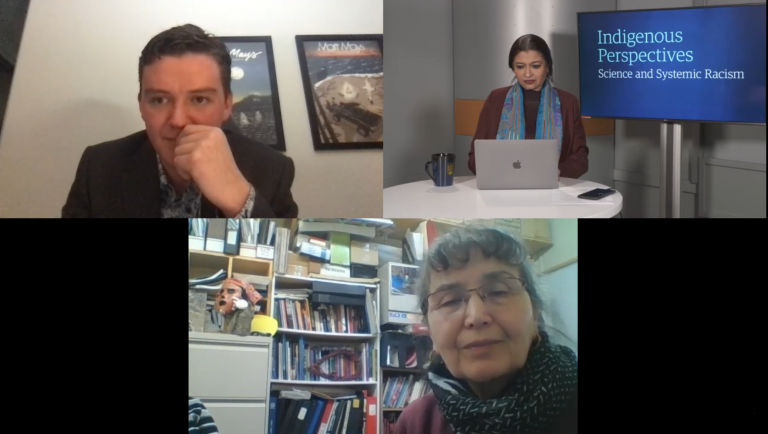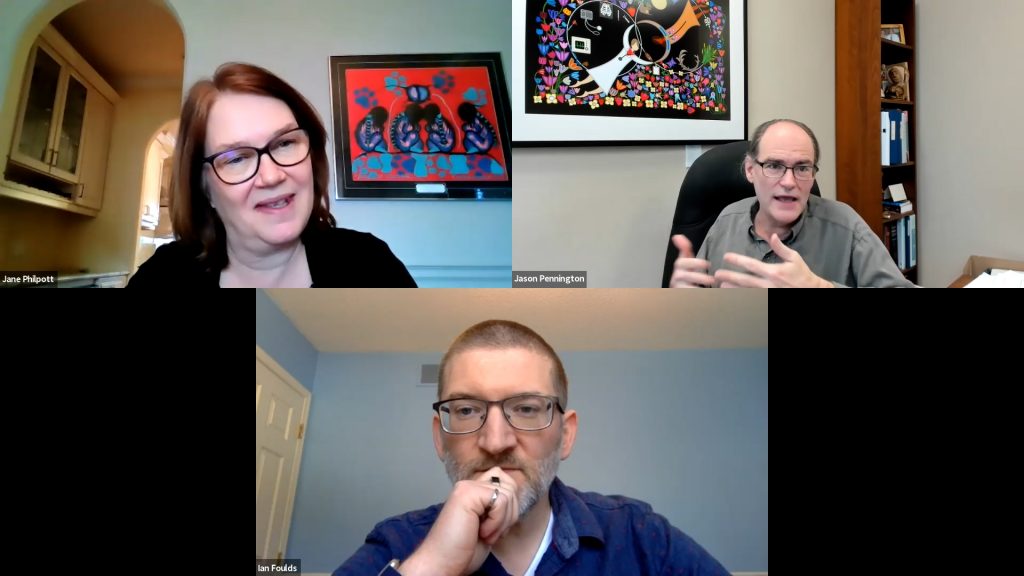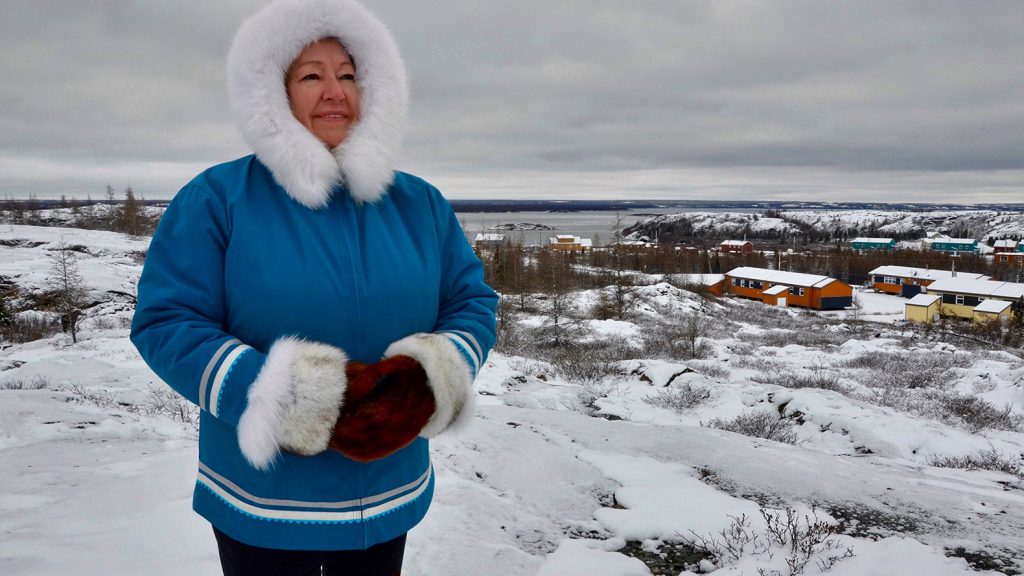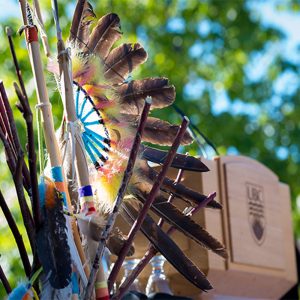 June is National Indigenous History Month in Canada, which recognizes the history, heritage and diversity of First Nations, Inuit and Métis peoples in Canada. This page shares virtual events hosted by UBC Okanagan in recognition of National Indigenous History Month, in addition to resources and news. We encourage you to explore the resources on this page and learn more.
June is National Indigenous History Month in Canada, which recognizes the history, heritage and diversity of First Nations, Inuit and Métis peoples in Canada. This page shares virtual events hosted by UBC Okanagan in recognition of National Indigenous History Month, in addition to resources and news. We encourage you to explore the resources on this page and learn more.
Statements on the discovery of the unmarked buried remains of 215 children at the site of the former Kamloops Indian Residential School
-
- Indian Residential School History and Dialogue Centre (IRSHDC) press release
- Okanagan National Alliance media release: Syilx Okanagan Nation joins other nations call for accountability
- Musqueam Indian Band article: remembering 215 children found at Kamloops Indian Residential School
- UBC statement on the missing children of the Kamloops Indian Residential School
- UBC flags lowered in memory of the 215 children buried at the former Kamloops Indian Residential School
The Importance of Embedding Indigenous History in Courses and Curriculum Across the Disciplines
Syilx/Okanagan Nation Elders Chris Marchand and Eric Mitchell, along with their daughter, Vanessa Mitchell, Interior Health, and UBC faculty share their experience and perspectives on the importance of Indigenous history in education.
Reflections on National Indigenous History Month
Adrienne Vedan, Senior Advisor on Indigenous Affairs; Brad Wuetherick, Associate Provost, Academic Programs, Teaching and Learning; and Tashia Kootenayoo, Students’ Union President, UBC Okanagan share their thoughts about National Indigenous History Month and National Indigenous Peoples Day.
UBC Okanagan Honorary Degree Recipients
Chief Clarence Louie, C.M., O.B.C.
Since his election in December of 1984 as Chief of the Osoyoos Indian Band of the Okanagan Nation, Clarence Joseph Louie has consistently emphasized economic development as a means to improve his people’s standard of living.
Under his direction, the Band has become a multi‐faceted corporation that owns and manages eleven businesses and five joint ventures, employing approximately one thousand people. At the same time, he has consistently demonstrated his belief that First Nations leaders have a responsibility to incorporate First Nations language and culture in all socio‐economic initiatives as a means to preserve Indigenous heritage.
Elder Jessie Nyberg
A member of the Canoe Creek Band of the Secwepmc (Shuswap) Nation, Elder Jessie Nyberg has been described as a Traditional Indigenous and academic scholar, and as a visionary leader.
Over her 45‐year career, she has held numerous professional positions as an Indigenous nurse in British Columbia, Alberta, California, and Hawaii. Her practice included acute and community care, specializing in urban, rural and remote Indigenous health. She was also led Indigenous children’s health within the BC Ministry of Children and Family Development. As an Elder Advisor in the UBC Okanagan Faculty of Health and Social Development she co-led a cultural safety curriculum and several Indigenous community-led research projects.
Elder Christina E. Marchand & Elder Eric Mitchell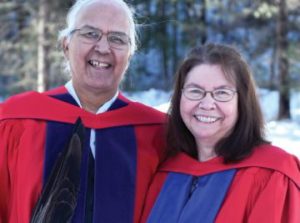
Life partners, Christina Marchand and Eric Mitchell are members of the Syilx/Okanagan Nation. Christina is a Sixties Scoop survivor, and Eric is a survivor of the Residential School system. As Elders in Residence at the UBCO Aboriginal Center they make important contributions to enriching the educational experience for Indigenous students. As co-founders of cultural safety programming and Adjunct Professors in both the School of Nursing and Faculty of Creative and Critical Studies, they have made tremendous contributions to the experiences of Indigenous students, faculty, and staff. They have influenced the cultural safety education at UBCO by giving voice to Indigenous stories, exposing the truth about the colonial narrative and inspiring participants to position themselves in Reconciliation. VIEW AWARDING OF HONORARY DEGREE (2020)
Highlighted Programs
Bachelor of Nsyilxcn Language Fluency (BNLF)
UBC Okanagan offers Canada’s first bachelor’s degree of Indigenous language fluency
The Bachelor of Nsyilxcn Language Fluency (BNLF) program, created in collaboration with the Nicola Valley Institute of Technology (NVIT) and the En’owkin Centre, is designed to work closely with the community to provide a comprehensive and high-quality education in Nsyilxcn—the language spoken by members of the Syilx Okanagan Nation—and to promote new, fluent speakers with a deep understanding of the language, culture, and customs.
Indigenous Art Intensive
Faculty of Creative and Critical Studies
The Faculty of Critical and Creative Studies is hosting UBC’s Indigenous Art Intensive. This month-long intensive offers an educational series of courses, lectures, art shows, and opportunities to create art. It features a series of world-renowned speakers, a variety of related undergraduate and graduate credit courses, and a group of resident artists who will be working to create a new body of work. The 2021 Intensive broadly engages the theme Site/ation, connecting to place through Indigenous territoriality, being grounded in land, voice and language, reconnecting to/nurturing traditions, and beyond. Visiting artists will participate in a series of public keynote presentations and artist panels once a week throughout May and June.
Indigenous Artist in Residence
UBC Okanagan hosts influential Indigenous Artist Whess Harman
Whess Harman is UBC Okanagan Gallery’s Artist in Residence for 2021. During their residency at the Faculty of Creative and Critical Studies they will create new works, give an artist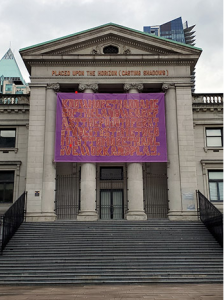 talk, publish an art publication and open an exhibition of new works. Lossy: How to Save File for Future Transmission will be on view at the UBC Okanagan FINA Gallery from June 11 to September 10.
talk, publish an art publication and open an exhibition of new works. Lossy: How to Save File for Future Transmission will be on view at the UBC Okanagan FINA Gallery from June 11 to September 10.
Harman is Carrier Wit’at, a nation amalgamated by the federal government under the Lake Babine Nation. Harman’s multidisciplinary practice includes beading, illustration, text, curation and poetry.
Whess Harman’s artwork was hung outside the Vancouver Art Gallery just days before the current display of 215 pair of shoes symbolizing the death 215 Indigenous children was placed. Harman’s banner states how land acknowledgements are not enough and how they are the lowest bar in the process of truth and reconciliation for the Indigenous peoples.
PAST EVENTS
Indigenous Art Intensive, Keynote Speaker: Dr. Jolene Rickard
June 10 | 1 to 2:30 p.m.
Hosted by: Faculty of Creative and Critical Studies
Dr. Jolene Rickard is a visual historian, artist and curator interested in the intersection of Indigenous knowledge and contemporary art, materiality, and ecocriticism with an emphasis on Hodinöhsö:ni aesthetics.
Indigenous Art Intensive, Panel Discussion
June 14 | 2 to 3:30 p.m.
Hosted by: Faculty of Creative and Critical Studies
In the final panel event of the 2021 Indigenous Art Intensive, Cathy Mattes will lead a robust discussion with participating artists Peter Morin and Camille Usher. In her curatorial and writing practice, Cathy Mattes focuses on Indigenous issues and art, and explores concepts of community and dialogical aesthetics. She has contributed writings to the Winnipeg Art Gallery, Plug In ICA, Canadian Dimension Magazine, and the National Museum of the American Indian. Mattes was the curator at the Art Gallery of Southwestern Manitoba between 2003 and 2005, and is now an associate professor of art history at Brandon University in the IshKaabatens Waasa Gaa Inaabateg Department of Visual Art.
Indigenous Art Intensive, Peter Morin Artist Talk
June 16 | 1 to 2 p.m.
Hosted by: Faculty of Creative and Critical Studies
Peter Morin is a grandson of Tahltan ancestor artists. He has now lived away from his home territory for most of his life, but like his ancestors who have walked on the land, he carries Tahltan knowledge, ideas and history with him wherever he is. Every step along the way, Tahltan knowledge has guided his researching, dreaming, learning, making of the past twenty years of artistic and curatorial practice.
Digital wellness project for young Indigenous men: Preliminary results from a community-based participatory project
June 17 | 12 to 1:30 p.m.
Hosted by: Institute for Healthy Living and Chronic Disease Prevention
Join the Institute for Healthy Living and Chronic Disease Prevention to celebrate Men’s Health week, and hear the preliminary results from a community-based participatory project aiming to understand how digital media influences the identity, health, and wellness of young Indigenous men who are students at UBC Okanagan.
Sheldon Pierre Louis Artist Talk
June 22 | 7 to 9 p.m.
Hosted by: Okanagan School of Education
Syilx artist Sheldon Pierre Louis will talk about his art practice and new commission for the Public Art Collection at UBC Okanagan. Sheldon Pierre Louis, a member of the Okanagan/Syilx Nation, is a multi-disciplinary Okanagan/Syilx Artist. Sheldon’s ancestral roots have influenced his works in painting, drawing, carving, and sculpting.
embedding indigenous History in courses and Curriculum
A panel presentation and discussion hosted by Brad Wuetherick, Associate Provost, Academic Programs, Teaching and Learning.
June 28 | 3:30 to 5 p.m.
In this webinar Syilx/Okanagan Nation Elders Chris Marchand and Eric Mitchell, along with their daughter, Vanessa Mitchell, Interior Health will share their experience and perspectives on the importance of Indigenous history in education. A panel of UBC Okanagan faculty from the School of Engineering and the Faculty of Creative and Critical Studies will share presentations on the importance of Indigenous history across the disciplines, how they approach embedding Indigenous history into their teaching, and how faculty can learn more about Indigenous histories and its relevance and importance to different disciplines.
The presentations will be followed by a moderated Q&A
Recent Webinars
Indigenous Perspectives, Science and Systemic Racism
In part two of a three-part series discussing systemic racism in science, panelists Elder Albert Marshall, Mi’kmaw Nation; Dr. Jeannette Armstrong, Canada Research Chair in Okanagan Indigenous Knowledge and Philosophy, UBC Okanagan; and Aaron Prosper, graduate student, UPEI & project manager of the Nova Scotia Mi’kmaw Nation Cancer Care Strategy, led a discussion on Indigenous Perspectives and Science and Systemic Racism.
THE IMPORTANCE OF STEM EDUCATION FOR INDIGENOUS YOUTH IN CANADA
Panellists Dr. Jane Philpott, Dean of the Faculty of Health Sciences and Director of the School of Medicine at Queen’s University and Dr. Jason Pennington, Assistant Professor, General Surgery at the University of Toronto discussed the importance of STEM education for Indigenous youth in Canada. This webinar included a dynamic and engaging q&a session moderated by Ian Foulds, Principal’s Research Chair – Indigenous Reconciliation in Engineering (Tier 1), UBC Okanagan.
The Right to Be Cold: One Woman’s Story of Protecting Her Culture, the Arctic and the Whole Planet
UBC Sustainability’s climate justice webinar series hosted a conversation with Shelia Watt-Cloutier on The Right to Be Cold – a culmination of her regional, national, and international work over the last twenty-five years – exploring the parallels between safeguarding the Arctic and the survival of Inuit culture, of which her own background is such an extraordinary example.
Resources
Indigenous Strategic Plan
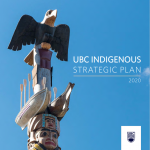
The Indigenous Strategic Plan (ISP) was created with input from more than 2,500 students, faculty and staff across both campuses, including Indigenous students, faculty and staff, and Indigenous community partners. The ISP is a living document and will be reviewed every three years in consultation with the UBC community and our Indigenous partners.
The ISP sets out a series of eight goals and 43 actions the university will collectively take in order to advance our vision of becoming a leading university globally in the implementation of Indigenous peoples’ human rights. For inquiries, contact the Office of Indigenous Strategic Initiatives, oisi.admin@ubc.ca.
ISP Implementation Toolkit
UBC has begun to implement its Indigenous Strategic Plan, taking a leading role in the advancement of Indigenous peoples’ human rights. To help guide the implementation of the ISP, the Office of Indigenous Strategic Initiatives has developed a set of tools that units can use to help situate themselves in relation to Indigenous engagement and to start aligning their work with the Plan.
Explore More
UBC Plans & Reports
- Inclusion Action Plan
- Indigenous Strategic Plan
- Shaping UBC’s Next Century
- Truth and Reconciliation Declarations – 2020 Annual Report
UBC Programs & Contacts
OKANAGAN Resources and contacts
Learn more about Indigenous history and Indigenous nations and community groups in the Okanagan.
- Confederated Tribes of the Colville
- En’owkin Centre
- Ki-Low-Na Friendship Society
- Lower Similkameen Indian Band
- Okanagan Indian Band
- Osoyoos Indian Band
- Penticton Indian Band
- Syilx Okanagan Alliance
- Upper Nicola Band
- Westbank First Nation
Does your organization have events taking place for Indigenous History Month? Please email us to be added to this list.

